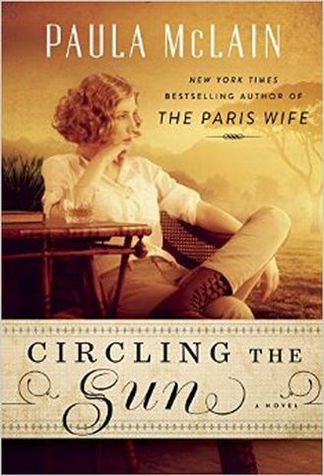 Written by Lauryn Smith Woman-behind-the-man books seem to be gaining popularity. Paula McLain is back with another, the historical fiction novel "Circling the Sun," in which she adheres to the story of Beryl Markham, a talented racehorse trainer and eventual record-setting aviator. A tale of courage, family, marriage, promiscuity and gossip, "Circling the Sun" is a well-written, intriguing tale of an impressive woman with a personality of questionable disposition. McLain opens the book with a depiction of a harrowing portion of Beryl’s historic 1936 solo flight—an ultimately successful east to west flight from England to North America across the Atlantic Ocean. She then leads into a prolonged reflection of Beryl's life before returning once more to the opening scene. Throughout the bulk of the book, McLain illustrates Beryl’s exploration of her life choices and core memories. Set in the 1920s in colonial Kenya, McLain exposes aspects of the protagonist’s youth that come to shape her character as an adult. Beryl is brought from England to a Kenyan farm as a child, is left by her mother (who after a short time in Kenya returns to England with Beryl’s younger brother), and is hence raised by her father and the local Kipsigis tribe. Members of this tribe call her Lakwet, a name that implies bravery and self-sufficiency, a name that implies a respect for and love of nature, a name that comes to act as the link between Beryl’s adult self and her younger one.
0 Comments
|

Enjoying my book reviews? If you’ve found them helpful or simply love diving into a good book, consider supporting my caffeine-fueled reading sessions! Your contribution helps keep the reviews coming and ensures I stay wide awake for those late-night reading marathons. Cheers to a shared love for literature! ☕️
Categories
All
|
